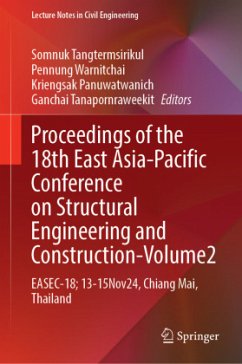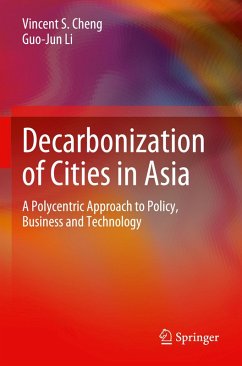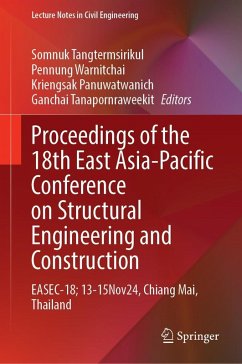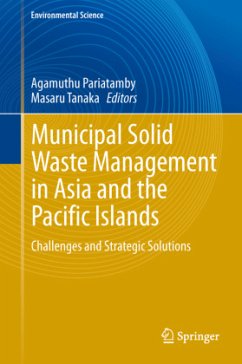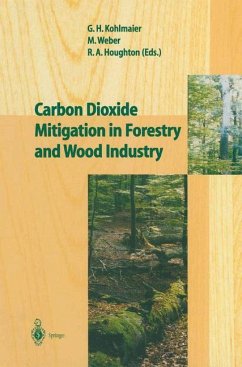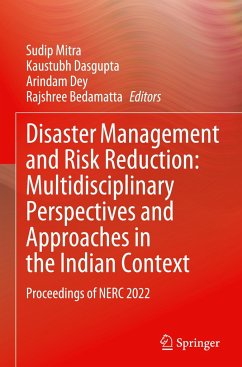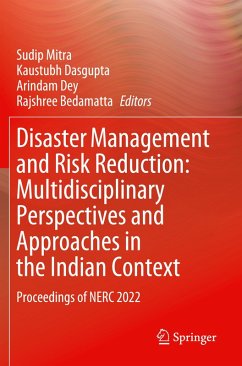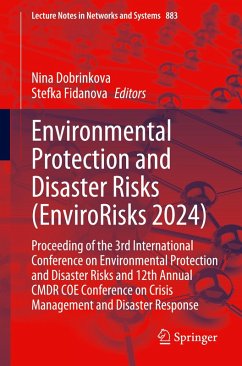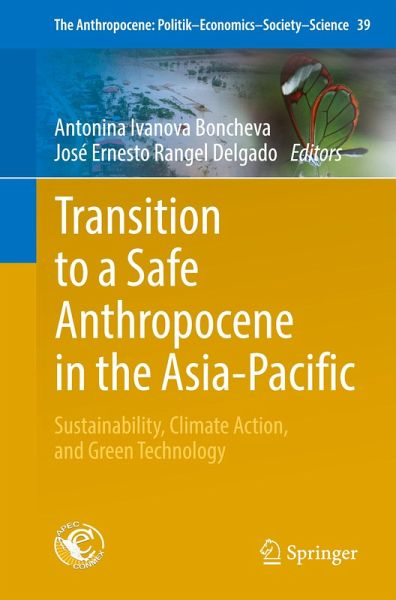
Transition to a Safe Anthropocene in the Asia-Pacific
Sustainability, Climate Action, and Green Technology
Herausgegeben: Ivanova Boncheva, Antonina; Rangel Delgado, José Ernesto

PAYBACK Punkte
58 °P sammeln!
The Anthropocene concept highlights that we are now living in a new epoch of earth history where both the rapid accumulation of greenhouse gases and excessive consumption of natural resources endanger human and planetary wellbeing. Climate change is one of the main drivers of the Anthropocene and is intricately linked to many great challenges we face: lack of fresh water, food security, biodiversity loss, and human rights of present and future generations. The radical influence of humanity on nature must change from destructive to reconstructive, by the path of sustainable development, circula...
The Anthropocene concept highlights that we are now living in a new epoch of earth history where both the rapid accumulation of greenhouse gases and excessive consumption of natural resources endanger human and planetary wellbeing. Climate change is one of the main drivers of the Anthropocene and is intricately linked to many great challenges we face: lack of fresh water, food security, biodiversity loss, and human rights of present and future generations. The radical influence of humanity on nature must change from destructive to reconstructive, by the path of sustainable development, circular economy, climate action, green technology, and environmental awareness.
This book explores the pathways of transition towards a safe and sustainable Anthropocene in the Asia-Pacific and reviews the progress and the challenges in climate action, the recovery from COVID-19, and the re-articulation of world order. The chapters address both regional and country levels, the majority analysing China and Mexico. The experiences presented can be replicated in other regions of the world.
The book offers useful insights for all interested in the Anthropocene, in climate action, sustainability, and the relationship between human beings and nature, thus motivating the decision-makers to implement a just and inclusive transition to a safe Anthropocene.
- A novel study that explores links between the Anthropocene, climate change, and sustainability, framing the transition towards a safe and sustainable Anthropocene in the Asia-Pacific.
- Strategies and policies on climate action, renewable energies, green technology, and environmental education include the participation of governments, NGOs, and civil society.
- Case studies based on experiences at the regional and country level provide valuable insights for both industrialised and developing countries.
This book explores the pathways of transition towards a safe and sustainable Anthropocene in the Asia-Pacific and reviews the progress and the challenges in climate action, the recovery from COVID-19, and the re-articulation of world order. The chapters address both regional and country levels, the majority analysing China and Mexico. The experiences presented can be replicated in other regions of the world.
The book offers useful insights for all interested in the Anthropocene, in climate action, sustainability, and the relationship between human beings and nature, thus motivating the decision-makers to implement a just and inclusive transition to a safe Anthropocene.
- A novel study that explores links between the Anthropocene, climate change, and sustainability, framing the transition towards a safe and sustainable Anthropocene in the Asia-Pacific.
- Strategies and policies on climate action, renewable energies, green technology, and environmental education include the participation of governments, NGOs, and civil society.
- Case studies based on experiences at the regional and country level provide valuable insights for both industrialised and developing countries.




